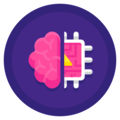
Note: You can easily convert this markdown file to a PDF in VSCode using this handy extension Markdown PDF.

Machine Learning/Deep Learning Frameworks.
Learning Resources for ML
ML Frameworks, Libraries, and Tools
Algorithms
PyTorch Development
TensorFlow Development
Core ML Development
Deep Learning Development
Reinforcement Learning Development
Computer Vision Development
Natural Language Processing (NLP) Development
Bioinformatics
CUDA Development
MATLAB Development
C/C++ Development
Java Development
Python Development
Scala Development
R Development
Julia Development
Back to the Top
Machine Learning is a branch of artificial intelligence (AI) focused on building apps using algorithms that learn from data models and improve their accuracy over time without needing to be programmed.
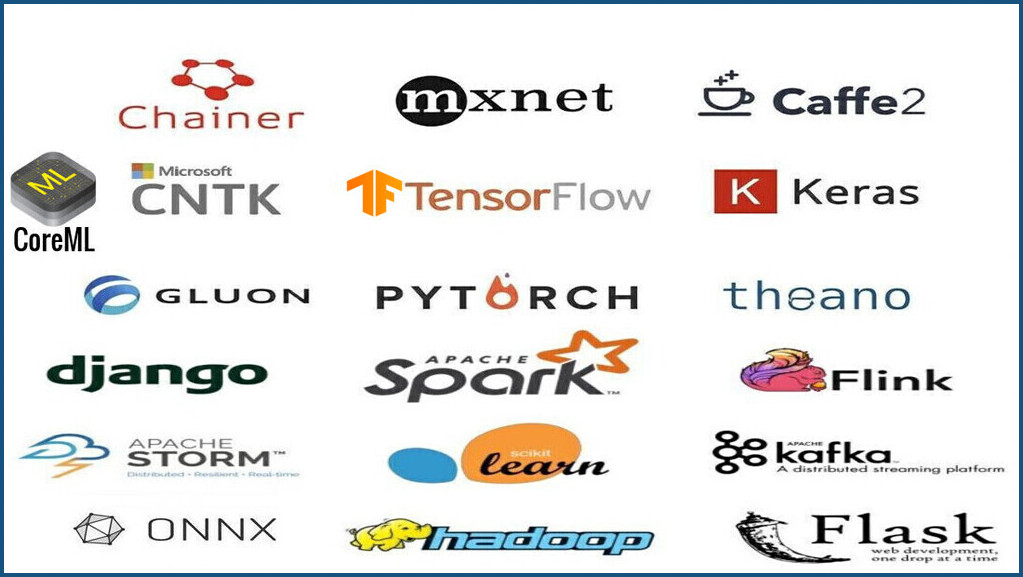
Back to the Top
Natural Language Processing (NLP) Best Practices by Microsoft
The Autonomous Driving Cookbook by Microsoft
Azure Machine Learning - ML as a Service | Microsoft Azure
How to run Jupyter Notebooks in your Azure Machine Learning workspace
Machine Learning and Artificial Intelligence | Amazon Web Services
Scheduling Jupyter notebooks on Amazon SageMaker ephemeral instances
AI & Machine Learning | Google Cloud
Using Jupyter Notebooks with Apache Spark on Google Cloud
Machine Learning | Apple Developer
Artificial Intelligence & Autopilot | Tesla
Meta AI Tools | Facebook
PyTorch Tutorials
TensorFlow Tutorials
JupyterLab
Stable Diffusion with Core ML on Apple Silicon
Back to the Top
Machine Learning by Stanford University by Andrew Ng | Coursera
AWS Training and Certification for Machine Learning (ML) Courses
Machine Learning Scholarship Program for Microsoft Azure | Udacity
Microsoft Certified: Azure Data Scientist Associate
Microsoft Certified: Azure AI Engineer Associate
Azure Machine Learning training and deployment
Learning Machine learning and artificial intelligence from Google Cloud Training
Machine Learning Crash Course for Google Cloud
Machine Learning Courses Online | Udemy
Machine Learning Courses Online | Coursera
Learn Machine Learning with Online Courses and Classes | edX
Back to the Top
Introduction To Machine Learning (PDF)
Artificial Intelligence: A Modern Approach by Stuart J. Russel and Peter Norvig
Deep Learning by Ian Goodfellow, Yoshoua Bengio, and Aaron Courville
The Hundred-Page Machine Learning Book by Andriy Burkov
Machine Learning by Tom M. Mitchell
Programming Collective Intelligence: Building Smart Web 2.0 Applications by Toby Segaran
Machine Learning: An Algorithmic Perspective, Second Edition
Pattern Recognition and Machine Learning by Christopher M. Bishop
Natural Language Processing with Python by Steven Bird, Ewan Klein, and Edward Loper
Python Machine Learning: A Technical Approach to Machine Learning for Beginners by Leonard Eddison
Bayesian Reasoning and Machine Learning by David Barber
Machine Learning for Absolute Beginners: A Plain English Introduction by Oliver Theobald
Machine Learning in Action by Ben Wilson
Hands-On Machine Learning with Scikit-Learn, Keras, and TensorFlow: Concepts, Tools, and Techniques to Build Intelligent Systems by Aurélien Géron
Introduction to Machine Learning with Python: A Guide for Data Scientists by Andreas C. Müller & Sarah Guido
Machine Learning for Hackers: Case Studies and Algorithms to Get you Started by Drew Conway and John Myles White
The Elements of Statistical Learning: Data Mining, Inference, and Prediction by Trevor Hastie, Robert Tibshirani, and Jerome Friedman
Distributed Machine Learning Patterns - Book (free to read online) + Code
Real World Machine Learning [Free Chapters]
An Introduction To Statistical Learning - Book + R Code
Elements of Statistical Learning - Book
Think Bayes - Book + Python Code
Mining Massive Datasets
A First Encounter with Machine Learning
Introduction to Machine Learning - Alex Smola and S.V.N. Vishwanathan
A Probabilistic Theory of Pattern Recognition
Introduction to Information Retrieval
Forecasting: principles and practice
Introduction to Machine Learning - Amnon Shashua
Reinforcement Learning
Machine Learning
A Quest for AI
R Programming for Data Science
Data Mining - Practical Machine Learning Tools and Techniques
Machine Learning with TensorFlow
Machine Learning Systems
Foundations of Machine Learning - Mehryar Mohri, Afshin Rostamizadeh, and Ameet Talwalkar
AI-Powered Search - Trey Grainger, Doug Turnbull, Max Irwin -
Ensemble Methods for Machine Learning - Gautam Kunapuli
Machine Learning Engineering in Action - Ben Wilson
Privacy-Preserving Machine Learning - J. Morris Chang, Di Zhuang, G. Dumindu Samaraweera
Automated Machine Learning in Action - Qingquan Song, Haifeng Jin, and Xia Hu
Distributed Machine Learning Patterns - Yuan Tang
Managing Machine Learning Projects: From design to deployment - Simon Thompson
Causal Machine Learning - Robert Ness
Bayesian Optimization in Action - Quan Nguyen
Machine Learning Algorithms in Depth) - Vadim Smolyakov
Optimization Algorithms - Alaa Khamis
Practical Gradient Boosting by Guillaume Saupin
Back to the Top
Back to the Top
TensorFlow is an end-to-end open source platform for machine learning. It has a comprehensive, flexible ecosystem of tools, libraries and community resources that lets researchers push the state-of-the-art in ML and developers easily build and deploy ML powered applications.
Keras is a high-level neural networks API, written in Python and capable of running on top of TensorFlow, CNTK, or Theano.It was developed with a focus on enabling fast experimentation. It is capable of running on top of TensorFlow, Microsoft Cognitive Toolkit, R, Theano, or PlaidML.
PyTorch is a library for deep learning on irregular input data such as graphs, point clouds, and manifolds. Primarily developed by Facebook's AI Research lab.
Amazon SageMaker is a fully managed service that provides every developer and data scientist with the ability to build, train, and deploy machine learning (ML) models quickly. SageMaker removes the heavy lifting from each step of the machine learning process to make it easier to develop high quality models.
Azure Databricks is a fast and collaborative Apache Spark-based big data analytics service designed for data science and data engineering. Azure Databricks, sets up your Apache Spark environment in minutes, autoscale, and collaborate on shared projects in an interactive workspace. Azure Databricks supports Python, Scala, R, Java, and SQL, as well as data science frameworks and libraries including TensorFlow, PyTorch, and scikit-learn.
Microsoft Cognitive Toolkit (CNTK) is an open-source toolkit for commercial-grade distributed deep learning. It describes neural networks as a series of computational steps via a directed graph. CNTK allows the user to easily realize and combine popular model types such as feed-forward DNNs, convolutional neural networks (CNNs) and recurrent neural networks (RNNs/LSTMs). CNTK implements stochastic gradient descent (SGD, error backpropagation) learning with automatic differentiation and parallelization across multiple GPUs and servers.
Apple CoreML is a framework that helps integrate machine learning models into your app. Core ML provides a unified representation for all models. Your app uses Core ML APIs and user data to make predictions, and to train or fine-tune models, all on the user's device. A model is the result of applying a machine learning algorithm to a set of training data. You use a model to make predictions based on new input data.
Apache OpenNLP is an open-source library for a machine learning based toolkit used in the processing of natural language text. It features an API for use cases like Named Entity Recognition, Sentence Detection, POS(Part-Of-Speech) tagging, Tokenization Feature extraction, Chunking, Parsing, and Coreference resolution.
Apache Airflow is an open-source workflow management platform created by the community to programmatically author, schedule and monitor workflows. Install. Principles. Scalable. Airflow has a modular architecture and uses a message queue to orchestrate an arbitrary number of workers. Airflow is ready to scale to infinity.
Open Neural Network Exchange(ONNX) is an open ecosystem that empowers AI developers to choose the right tools as their project evolves. ONNX provides an open source format for AI models, both deep learning and traditional ML. It defines an extensible computation graph model, as well as definitions of built-in operators and standard data types.
Apache MXNet is a deep learning framework designed for both efficiency and flexibility. It allows you to mix symbolic and imperative programming to maximize efficiency and productivity. At its core, MXNet contains a dynamic dependency scheduler that automatically parallelizes both symbolic and imperative operations on the fly. A graph optimization layer on top of that makes symbolic execution fast and memory efficient. MXNet is portable and lightweight, scaling effectively to multiple GPUs and multiple machines. Support for Python, R, Julia, Scala, Go, Javascript and more.
AutoGluon is toolkit for Deep learning that automates machine learning tasks enabling you to easily achieve strong predictive performance in your applications. With just a few lines of code, you can train and deploy high-accuracy deep learning models on tabular, image, and text data.
Anaconda is a very popular Data Science platform for machine learning and deep learning that enables users to develop models, train them, and deploy them.
PlaidML is an advanced and portable tensor compiler for enabling deep learning on laptops, embedded devices, or other devices where the available computing hardware is not well supported or the available software stack contains unpalatable license restrictions.
OpenCV is a highly optimized library with focus on real-time computer vision applications. The C++, Python, and Java interfaces support Linux, MacOS, Windows, iOS, and Android.
Scikit-Learn is a Python module for machine learning built on top of SciPy, NumPy, and matplotlib, making it easier to apply robust and simple implementations of many popular machine learning algorithms.
Weka is an open source machine learning software that can be accessed through a graphical user interface, standard terminal applications, or a Java API. It is widely used for teaching, research, and industrial applications, contains a plethora of built-in tools for standard machine learning tasks, and additionally gives transparent access to well-known toolboxes such as scikit-learn, R, and Deeplearning4j.
Caffe is a deep learning framework made with expression, speed, and modularity in mind. It is developed by Berkeley AI Research (BAIR)/The Berkeley Vision and Learning Center (BVLC) and community contributors.
Theano is a Python library that allows you to define, optimize, and evaluate mathematical expressions involving multi-dimensional arrays efficiently including tight integration with NumPy.
nGraph is an open source C++ library, compiler and runtime for Deep Learning. The nGraph Compiler aims to accelerate developing AI workloads using any deep learning framework and deploying to a variety of hardware targets.It provides the freedom, performance, and ease-of-use to AI developers.
NVIDIA cuDNN is a GPU-accelerated library of primitives for deep neural networks. cuDNN provides highly tuned implementations for standard routines such as forward and backward convolution, pooling, normalization, and activation layers. cuDNN accelerates widely used deep learning frameworks, including Caffe2, Chainer, Keras, MATLAB, MxNet, PyTorch, and TensorFlow.
Huginn is a self-hosted system for building agents that perform automated tasks for you online. It can read the web, watch for events, and take actions on your behalf. Huginn's Agents create and consume events, propagating them along a directed graph. Think of it as a hackable version of IFTTT or Zapier on your own server.
Netron is a viewer for neural network, deep learning and machine learning models. It supports ONNX, TensorFlow Lite, Caffe, Keras, Darknet, PaddlePaddle, ncnn, MNN, Core ML, RKNN, MXNet, MindSpore Lite, TNN, Barracuda, Tengine, CNTK, TensorFlow.js, Caffe2 and UFF.
Dopamine is a research framework for fast prototyping of reinforcement learning algorithms.
DALI is a GPU-accelerated library containing highly optimized building blocks and an execution engine for data processing to accelerate deep learning training and inference applications.
MindSpore Lite is a new open source deep learning training/inference framework that could be used for mobile, edge and cloud scenarios.
Darknet is an open source neural network framework written in C and CUDA. It is fast, easy to install, and supports CPU and GPU computation.
PaddlePaddle is an easy-to-use, efficient, flexible and scalable deep learning platform, which is originally developed by Baidu scientists and engineers for the purpose of applying deep learning to many products at Baidu.
GoogleNotebookLM is an experimental AI tool using the power of language models paired with your existing content to gain critical insights, faster. Similar to a virtual research assistant that can summarize facts, explain complex ideas, and brainstorm new connections based on the sources you select.
Unilm is a large-scale Self-supervised Pre-training Across Tasks, Languages, and Modalities.
Semantic Kernel (SK) is a lightweight SDK enabling integration of AI Large Language Models (LLMs) with conventional programming languages. The SK extensible programming model combines natural language semantic functions, traditional code native functions, and embeddings-based memory unlocking new potential and adding value to applications with AI.
Pandas AI is a Python library that integrates generative artificial intelligence capabilities into Pandas, making dataframes conversational.
NCNN is a high-performance neural network inference framework optimized for the mobile platform.
MNN is a blazing fast, lightweight deep learning framework, battle-tested by business-critical use cases in Alibaba.
MediaPipe is an optimized for end-to-end performance on a wide array of platforms. See demos Learn more Complex on-device ML, simplified We've abstracted away the complexities of making on-device ML customizable, production-ready, and accessible across platforms.
MegEngine is a fast, scalable, and user friendly deep learning framework with 3 key features: Unified framework for both training and inference.
ML.NET is a machine learning library that is designed as an extensible platform so that you can consume other popular ML frameworks (TensorFlow, ONNX, Infer.NET, and more) and have access to even more machine learning scenarios, like image classification, object detection, and more.
Ludwig is a declarative machine learning framework that makes it easy to define machine learning pipelines using a simple and flexible data-driven configuration system.
MMdnn is a comprehensive and cross-framework tool to convert, visualize and diagnose deep learning (DL) models. The "MM" stands for model management, and "dnn" is the acronym of deep neural network. Convert models between Caffe, Keras, MXNet, Tensorflow, CNTK, PyTorch Onnx and CoreML.
Horovod is a distributed deep learning training framework for TensorFlow, Keras, PyTorch, and Apache MXNet.
Vaex is a high performance Python library for lazy Out-of-Core DataFrames (similar to Pandas), to visualize and explore big tabular datasets.
GluonTS is a Python package for probabilistic time series modeling, focusing on deep learning based models, based on PyTorch and MXNet.
MindsDB is a ML-SQL Server enables machine learning workflows for the most powerful databases and data warehouses using SQL.
Jupyter Notebook is an open-source web application that allows you to create and share documents that contain live code, equations, visualizations and narrative text. Jupyter is used widely in industries that do data cleaning and transformation, numerical simulation, statistical modeling, data visualization, data science, and machine learning.
Apache Spark is a unified analytics engine for large-scale data processing. It provides high-level APIs in Scala, Java, Python, and R, and an optimized engine that supports general computation graphs for data analysis. It also supports a rich set of higher-level tools including Spark SQL for SQL and DataFrames, MLlib for machine learning, GraphX for graph processing, and Structured Streaming for stream processing.
Apache Spark Connector for SQL Server and Azure SQL is a high-performance connector that enables you to use transactional data in big data analytics and persists results for ad-hoc queries or reporting. The connector allows you to use any SQL database, on-premises or in the cloud, as an input data source or output data sink for Spark jobs.
Apache PredictionIO is an open source machine learning framework for developers, data scientists, and end users. It supports event collection, deployment of algorithms, evaluation, querying predictive results via REST APIs. It is based on scalable open source services like Hadoop, HBase (and other DBs), Elasticsearch, Spark and implements what is called a Lambda Architecture.
Cluster Manager for Apache Kafka(CMAK) is a tool for managing Apache Kafka clusters.
BigDL is a distributed deep learning library for Apache Spark. With BigDL, users can write their deep learning applications as standard Spark programs, which can directly run on top of existing Spark or Hadoop clusters.
Eclipse Deeplearning4J (DL4J) is a set of projects intended to support all the needs of a JVM-based(Scala, Kotlin, Clojure, and Groovy) deep learning application. This means starting with the raw data, loading and preprocessing it from wherever and whatever format it is in to building and tuning a wide variety of simple and complex deep learning networks.
Tensorman is a utility for easy management of Tensorflow containers by developed by System76.Tensorman allows Tensorflow to operate in an isolated environment that is contained from the rest of the system. This virtual environment can operate independent of the base system, allowing you to use any version of Tensorflow on any version of a Linux distribution that supports the Docker runtime.
Numba is an open source, NumPy-aware optimizing compiler for Python sponsored by Anaconda, Inc. It uses the LLVM compiler project to generate machine code from Python syntax. Numba can compile a large subset of numerically-focused Python, including many NumPy functions. Additionally, Numba has support for automatic parallelization of loops, generation of GPU-accelerated code, and creation of ufuncs and C callbacks.
Chainer is a Python-based deep learning framework aiming at flexibility. It provides automatic differentiation APIs based on the define-by-run approach (dynamic computational graphs) as well as object-oriented high-level APIs to build and train neural networks. It also supports CUDA/cuDNN using CuPy for high performance training and inference.
XGBoost is an optimized distributed gradient boosting library designed to be highly efficient, flexible and portable. It implements machine learning algorithms under the Gradient Boosting framework. XGBoost provides a parallel tree boosting (also known as GBDT, GBM) that solve many data science problems in a fast and accurate way. It supports distributed training on multiple machines, including AWS, GCE, Azure, and Yarn clusters. Also, it can be integrated with Flink, Spark and other cloud dataflow systems.
cuML is a suite of libraries that implement machine learning algorithms and mathematical primitives functions that share compatible APIs with other RAPIDS projects. cuML enables data scientists, researchers, and software engineers to run traditional tabular ML tasks on GPUs without going into the details of CUDA programming. In most cases, cuML's Python API matches the API from scikit-learn.
Emu is a GPGPU library for Rust with a focus on portability, modularity, and performance. It's a CUDA-esque compute-specific abstraction over WebGPU providing specific functionality to make WebGPU feel more like CUDA.
Scalene is a high-performance CPU, GPU and memory profiler for Python that does a number of things that other Python profilers do not and cannot do. It runs orders of magnitude faster than many other profilers while delivering far more detailed information.
MLpack is a fast, flexible C++ machine learning library written in C++ and built on the Armadillo linear algebra library, the ensmallen numerical optimization library, and parts of Boost.
Netron is a viewer for neural network, deep learning and machine learning models. It supports ONNX, TensorFlow Lite, Caffe, Keras, Darknet, PaddlePaddle, ncnn, MNN, Core ML, RKNN, MXNet, MindSpore Lite, TNN, Barracuda, Tengine, CNTK, TensorFlow.js, Caffe2 and UFF.
Lightning is a tool that builds and trains PyTorch models and connect them to the ML lifecycle using Lightning App templates, without handling DIY infrastructure, cost management, scaling, etc..
OpenNN is an open-source neural networks library for machine learning. It contains sophisticated algorithms and utilities to deal with many artificial intelligence solutions.
H20 is an AI Cloud platform that solves complex business problems and accelerates the discovery of new ideas with results you can understand and trust.
Gensim is a Python library for topic modelling, document indexing and similarity retrieval with large corpora. Target audience is the natural language processing (NLP) and information retrieval (IR) community.
llama.cpp is a Port of Facebook's LLaMA model in C/C++.
hmmlearn is a set of algorithms for unsupervised learning and inference of Hidden Markov Models.
Nextjournal is a notebook for reproducible research. It runs anything you can put into a Docker container. Improve your workflow with polyglot notebooks, automatic versioning and real-time collaboration. Save time and money with on-demand provisioning, including GPU support.
IPython provides a rich architecture for interactive computing with:
Veles is a Distributed platform for rapid Deep learning application development currently devloped by Samsung.
DyNet is a neural network library developed by Carnegie Mellon University and many others. It is written in C++ (with bindings in Python) and is designed to be efficient when run on either CPU or GPU, and to work well with networks that have dynamic structures that change for every training instance. These kinds of networks are particularly important in natural language processing tasks, and DyNet has been used to build state-of-the-art systems for syntactic parsing, machine translation, morphological inflection, and many other application areas.
Ray is a unified framework for scaling AI and Python applications. It consists of a core distributed runtime and a toolkit of libraries (Ray AIR) for accelerating ML workloads.
whisper.cpp is a high-performance inference of OpenAI's Whisper automatic speech recognition (ASR) model.
ChatGPT Plus is a pilot subscription plan($20/month) for ChatGPT, a conversational AI that can chat with you, answer follow-up questions, and challenge incorrect assumptions.
Auto-GPT is an "AI agent" that given a goal in natural language, can attempt to achieve it by breaking it into sub-tasks and using the internet and other tools in an automatic loop. It uses OpenAI's GPT-4 or GPT-3.5 APIs, and is among the first examples of an application using GPT-4 to perform autonomous tasks.
Chatbot UI by mckaywrigley is an advanced chatbot kit for OpenAI's chat models built on top of Chatbot UI Lite using Next.js, TypeScript, and Tailwind CSS. This version of ChatBot UI supports both GPT-3.5 and GPT-4 models. Conversations are stored locally within your browser. You can export and import conversations to safeguard against data loss. See a demo.
Chatbot UI Lite by mckaywrigley is a simple chatbot starter kit for OpenAI's chat model using Next.js, TypeScript, and Tailwind CSS. See a demo.
MiniGPT-4 is an enhancing Vision-language Understanding with Advanced Large Language Models.
GPT4All is an ecosystem of open-source chatbots trained on a massive collections of clean assistant data including code, stories and dialogue based on LLaMa.
GPT4All UI is a Flask web application that provides a chat UI for interacting with the GPT4All chatbot.
Alpaca.cpp is a fast ChatGPT-like model locally on your device. It combines the LLaMA foundation model with an open reproduction of Stanford Alpaca a fine-tuning of the base model to obey instructions (akin to the RLHF used to train ChatGPT) and a set of modifications to llama.cpp to add a chat interface.
llama.cpp is a Port of Facebook's LLaMA model in C/C++.
OpenPlayground is a playfround for running ChatGPT-like models locally on your device.
Vicuna is an open source chatbot trained by fine tuning LLaMA. It apparently achieves more than 90% quality of chatgpt and costs $300 to train.
Yeagar ai is a Langchain Agent creator designed to help you build, prototype, and deploy AI-powered agents with ease.
Vicuna is created by fine-tuning a LLaMA base model using approximately 70K user-shared conversations gathered from ShareGPT.com with public APIs. To ensure data quality, it convert the HTML back to markdown and filter out some inappropriate or low-quality samples.
ShareGPT is a place to share your wildest ChatGPT conversations with one click. With 198,404 conversations shared so far.
FastChat is an open platform for training, serving, and evaluating large language model based chatbots.
Haystack is an open source NLP framework to interact with your data using Transformer models and LLMs (GPT-4, ChatGPT and alike). It offers production-ready tools to quickly build complex decision making, question answering, semantic search, text generation applications, and more.
StableLM (Stability AI Language Models) is StableLM series of language models and will be continuously updated with new checkpoints.
Databricks’ Dolly is an instruction-following large language model trained on the Databricks machine learning platform that is licensed for commercial use.
GPTCach is a Library for Creating Semantic Cache for LLM Queries.
AlaC is an Artificial Intelligence Infrastructure-as-Code Generator.
Adrenaline is a tool that lets you talk to your codebase. It's powered by static analysis, vector search, and large language models.
OpenAssistant is a chat-based assistant that understands tasks, can interact with third-party systems, and retrieve information dynamically to do so.
DoctorGPT is a lightweight self-contained binary that monitors your application logs for problems and diagnoses them.
HttpGPT is an Unreal Engine 5 plugin that facilitates integration with OpenAI's GPT based services (ChatGPT and DALL-E) through asynchronous REST requests, making it easy for developers to communicate with these services. It also includes Editor Tools to integrate Chat GPT and DALL-E image generation directly in the Engine.
PaLM 2 is a next generation large language model that builds on Google’s legacy of breakthrough research in machine learning and responsible AI. It includes an advanced reasoning tasks, including code and math, classification and question answering, translation and multilingual proficiency, and natural language generation better than our previous state-of-the-art LLMs.
Med-PaLM is a large language model (LLM) designed to provide high quality answers to medical questions. It harnesses the power of Google’s large language models, which we have aligned to the medical domain with a set of carefully-curated medical expert demonstrations.
Sec-PaLM is a large language models (LLMs), that accelerate the ability to help people who are responsible for keeping their organizations safe. These new models not only give people a more natural and creative way to understand and manage security.
Back to the Top
Back to the Top
Back to the Top
LocalAI is a self-hosted, community-driven, local OpenAI-compatible API. Drop-in replacement for OpenAI running LLMs on consumer-grade hardware with no GPU required. It's an API to run ggml compatible models: llama, gpt4all, rwkv, whisper, vicuna, koala, gpt4all-j, cerebras, falcon, dolly, starcoder, and many others.
llama.cpp is a Port of Facebook's LLaMA model in C/C++.
ollama is a tool to get up and running with Llama 2 and other large language models locally.
LocalAI is a self-hosted, community-driven, local OpenAI-compatible API. Drop-in replacement for OpenAI running LLMs on consumer-grade hardware with no GPU required. It's an API to run ggml compatible models: llama, gpt4all, rwkv, whisper, vicuna, koala, gpt4all-j, cerebras, falcon, dolly, starcoder, and many others.
Serge is a web interface for chatting with Alpaca through llama.cpp. Fully self-hosted & dockerized, with an easy to use API.
OpenLLM is an open platform for operating large language models (LLMs) in production. Fine-tune, serve, deploy, and monitor any LLMs with ease.
Llama-gpt is a self-hosted, offline, ChatGPT-like chatbot. Powered by Llama 2. 100% private, with no data leaving your device.
Llama2 webui is a tool to run any Llama 2 locally with gradio UI on GPU or CPU from anywhere (Linux/Windows/Mac). Use llama2-wrapper as your local llama2 backend for Generative Agents/Apps.
Llama2.c is a tool to Train the Llama 2 LLM architecture in PyTorch then inference it with one simple 700-line C file (run.c).
Alpaca.cpp is a fast ChatGPT-like model locally on your device. It combines the LLaMA foundation model with an open reproduction of Stanford Alpaca a fine-tuning of the base model to obey instructions (akin to the RLHF used to train ChatGPT) and a set of modifications to llama.cpp to add a chat interface.
GPT4All is an ecosystem of open-source chatbots trained on a massive collections of clean assistant data including code, stories and dialogue based on LLaMa.
MiniGPT-4 is an enhancing Vision-language Understanding with Advanced Large Language Models
LoLLMS WebUI is a the hub for LLM (Large Language Model) models. It aims to provide a user-friendly interface to access and utilize various LLM models for a wide range of tasks. Whether you need help with writing, coding, organizing data, generating images, or seeking answers to your questions.
LM Studio is a tool to Discover, download, and run local LLMs.
Gradio Web UI is a tool for Large Language Models. Supports transformers, GPTQ, llama.cpp (ggml/gguf), Llama models.
OpenPlayground is a playfround for running ChatGPT-like models locally on your device.
Vicuna is an open source chatbot trained by fine tuning LLaMA. It apparently achieves more than 90% quality of chatgpt and costs $300 to train.
Yeagar ai is a Langchain Agent creator designed to help you build, prototype, and deploy AI-powered agents with ease.
KoboldCpp is an easy-to-use AI text-generation software for GGML models. It's a single self contained distributable from Concedo, that builds off llama.cpp, and adds a versatile Kobold API endpoint, additional format support, backward compatibility, as well as a fancy UI with persistent stories, editing tools, save formats, memory, world info, author's note, characters, and scenarios.
Back to the Top
Fuzzy logic is a heuristic approach that allows for more advanced decision-tree processing and better integration with rules-based programming.

Architecture of a Fuzzy Logic System. Source: ResearchGate
Support Vector Machine (SVM) is a supervised machine learning model that uses classification algorithms for two-group classification problems.
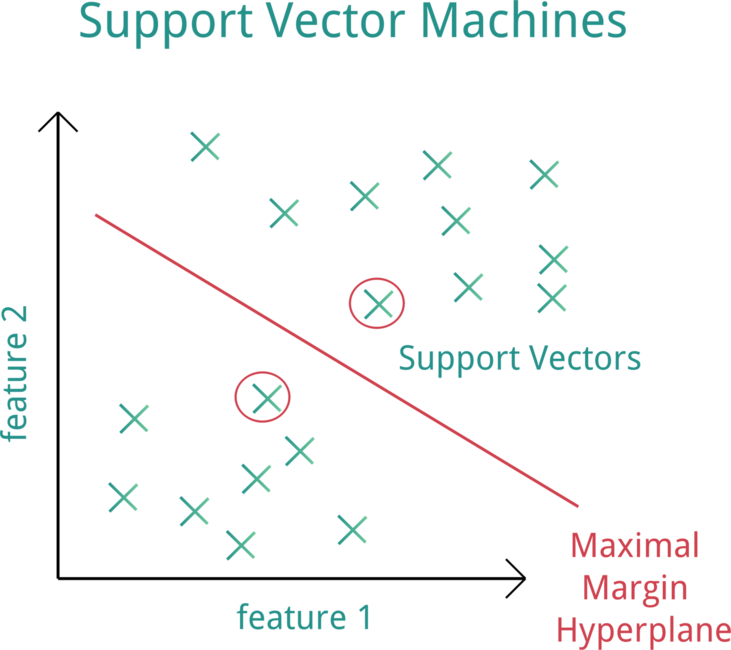
Support Vector Machine (SVM). Source:OpenClipArt
Neural networks are a subset of machine learning and are at the heart of deep learning algorithms. The name/structure is inspired by the human brain copying the process that biological neurons/nodes signal to one another.
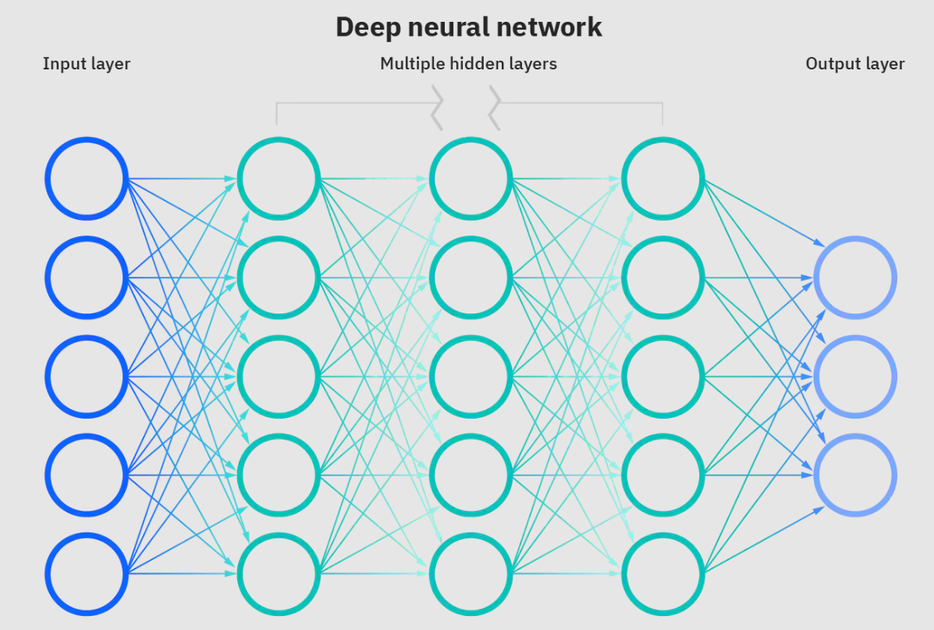
Deep neural network. Source: IBM
Convolutional Neural Networks (R-CNN) is an object detection algorithm that first segments the image to find potential relevant bounding boxes and then run the detection algorithm to find most probable objects in those bounding boxes.
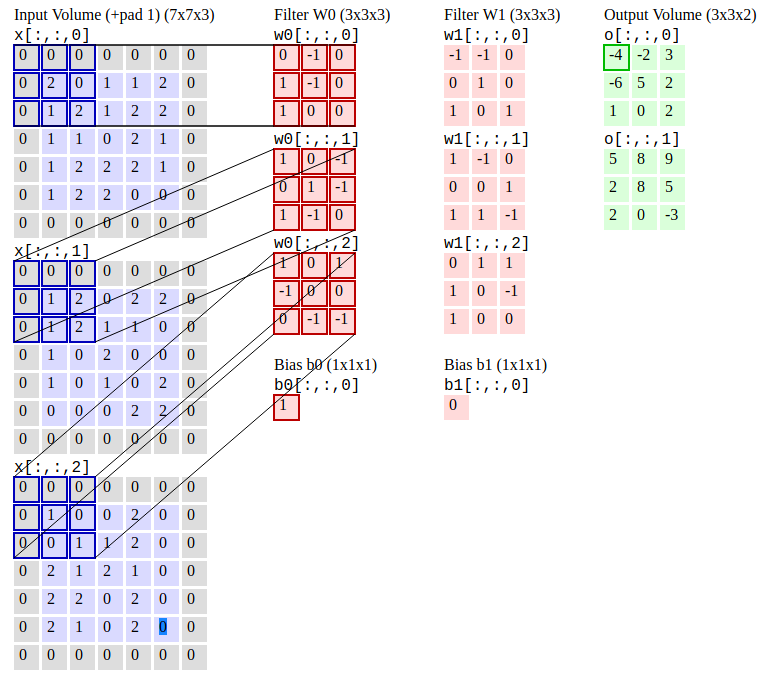
Convolutional Neural Networks. Source:CS231n
Recurrent neural networks (RNNs) is a type of artificial neural network which uses sequential data or time series data.
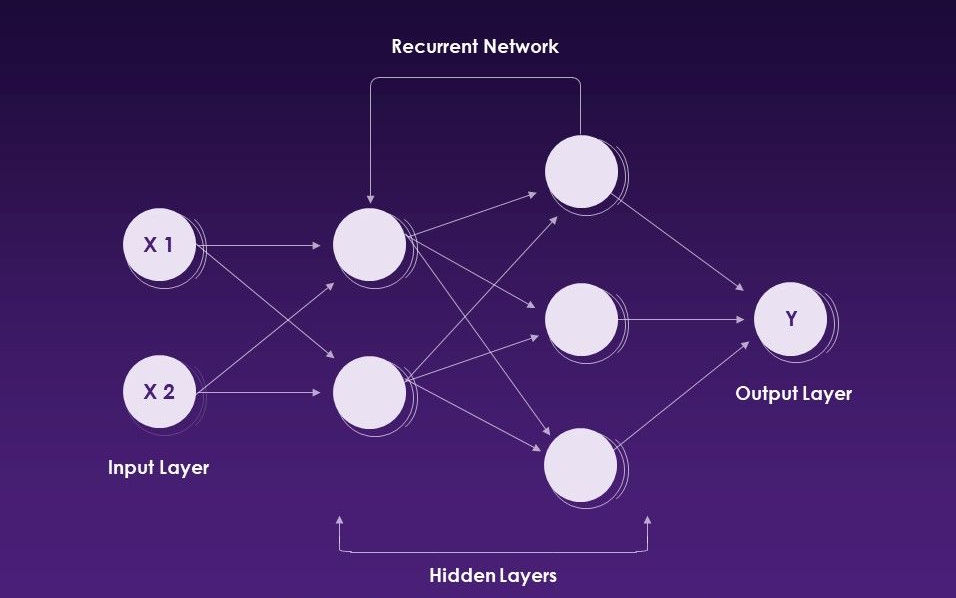
Recurrent Neural Networks. Source: Slideteam
Multilayer Perceptrons (MLPs) is multi-layer neural networks composed of multiple layers of perceptrons with a threshold activation.
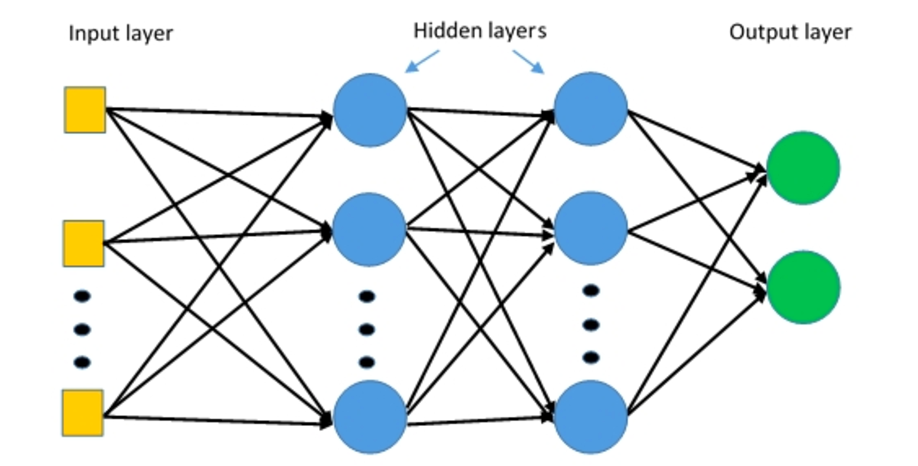
Multilayer Perceptrons. Source: DeepAI
Random forest is a commonly-used machine learning algorithm, which combines the output of multiple decision trees to reach a single result. A decision tree in a forest cannot be pruned for sampling and therefore, prediction selection. Its ease of use and flexibility have fueled its adoption, as it handles both classification and regression problems.
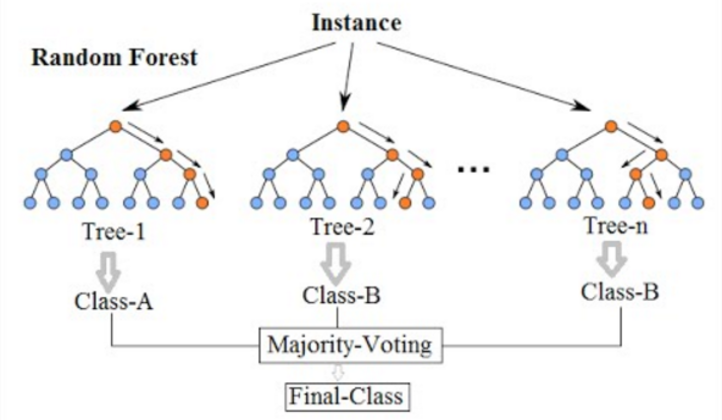
Random forest. Source: wikimedia
Decision trees are tree-structured models for classification and regression.
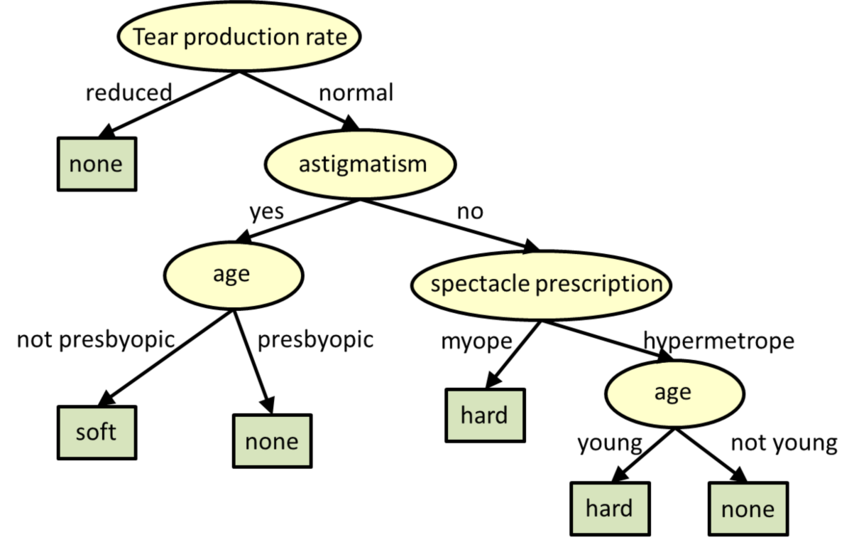
**Decision Trees. Source: CMU
Naive Bayes is a machine learning algorithm that is used solved calssification problems. It's based on applying Bayes' theorem with strong independence assumptions between the features.

Bayes' theorem. Source:mathisfun
Back to the Top

PyTorch is an open-source deep learning framework that accelerates the path from research to production, used for applications such as computer vision and natural language processing. PyTorch is developed by Facebook's AI Research lab.
Getting Started with PyTorch
PyTorch Documentation
PyTorch Discussion Forum
Top Pytorch Courses Online | Coursera
Top Pytorch Courses Online | Udemy
Learn PyTorch with Online Courses and Classes | edX
PyTorch Fundamentals - Learn | Microsoft Docs
Intro to Deep Learning with PyTorch | Udacity
PyTorch Development in Visual Studio Code
PyTorch on Azure - Deep Learning with PyTorch | Microsoft Azure
PyTorch - Azure Databricks | Microsoft Docs
Deep Learning with PyTorch | Amazon Web Services (AWS)
Getting started with PyTorch on Google Cloud
PyTorch Mobile is an end-to-end ML workflow from Training to Deployment for iOS and Android mobile devices.
TorchScript is a way to create serializable and optimizable models from PyTorch code. This allows any TorchScript program to be saved from a Python process and loaded in a process where there is no Python dependency.
TorchServe is a flexible and easy to use tool for serving PyTorch models.
Keras is a high-level neural networks API, written in Python and capable of running on top of TensorFlow, CNTK, or Theano.It was developed with a focus on enabling fast experimentation. It is capable of running on top of TensorFlow, Microsoft Cognitive Toolkit, R, Theano, or PlaidML.
ONNX Runtime is a cross-platform, high performance ML inferencing and training accelerator. It supports models from deep learning frameworks such as PyTorch and TensorFlow/Keras as well as classical machine learning libraries such as scikit-learn, LightGBM, XGBoost, etc.
Kornia is a differentiable computer vision library that consists of a set of routines and differentiable modules to solve generic CV (Computer Vision) problems.
PyTorch-NLP is a library for Natural Language Processing (NLP) in Python. It’s built with the very latest research in mind, and was designed from day one to support rapid prototyping. PyTorch-NLP comes with pre-trained embeddings, samplers, dataset loaders, metrics, neural network modules and text encoders.
Ignite is a high-level library to help with training and evaluating neural networks in PyTorch flexibly and transparently.
Hummingbird is a library for compiling trained traditional ML models into tensor computations. It allows users to seamlessly leverage neural network frameworks (such as PyTorch) to accelerate traditional ML models.
Deep Graph Library (DGL) is a Python package built for easy implementation of graph neural network model family, on top of PyTorch and other frameworks.
TensorLy is a high level API for tensor methods and deep tensorized neural networks in Python that aims to make tensor learning simple.
GPyTorch is a Gaussian process library implemented using PyTorch, designed for creating scalable, flexible Gaussian process models.
Poutyne is a Keras-like framework for PyTorch and handles much of the boilerplating code needed to train neural networks.
Forte is a toolkit for building NLP pipelines featuring composable components, convenient data interfaces, and cross-task interaction.
TorchMetrics is a Machine learning metrics for distributed, scalable PyTorch applications.
Captum is an open source, extensible library for model interpretability built on PyTorch.
Transformer is a State-of-the-art Natural Language Processing for Pytorch, TensorFlow, and JAX.
Hydra is a framework for elegantly configuring complex applications.
Accelerate is a simple way to train and use PyTorch models with multi-GPU, TPU, mixed-precision.
Ray is a fast and simple framework for building and running distributed applications.
ParlAI is a unified platform for sharing, training, and evaluating dialog models across many tasks.
PyTorchVideo is a deep learning library for video understanding research. Hosts various video-focused models, datasets, training pipelines and more.
Opacus is a library that enables training PyTorch models with Differential Privacy.
PyTorch Lightning is a Keras-like ML library for PyTorch. It leaves core training and validation logic to you and automates the rest.
PyTorch Geometric Temporal is a temporal (dynamic) extension library for PyTorch Geometric.
PyTorch Geometric is a library for deep learning on irregular input data such as graphs, point clouds, and manifolds.
Raster Vision is an open source framework for deep learning on satellite and aerial imagery.
CrypTen is a framework for Privacy Preserving ML. Its goal is to make secure computing techniques accessible to ML practitioners.
Optuna is an open source hyperparameter optimization framework to automate hyperparameter search.
Pyro is a universal probabilistic programming language (PPL) written in Python and supported by PyTorch on the backend.
Albumentations is a fast and extensible image augmentation library for different CV tasks like classification, segmentation, object detection and pose estimation.
Skorch is a high-level library for PyTorch that provides full scikit-learn compatibility.
MMF is a modular framework for vision & language multimodal research from Facebook AI Research (FAIR).
AdaptDL is a resource-adaptive deep learning training and scheduling framework.
Polyaxon is a platform for building, training, and monitoring large-scale deep learning applications.
TextBrewer is a PyTorch-based knowledge distillation toolkit for natural language processing
AdverTorch is a toolbox for adversarial robustness research. It contains modules for generating adversarial examples and defending against attacks.
NeMo is a a toolkit for conversational AI.
ClinicaDL is a framework for reproducible classification of Alzheimer's Disease
Stable Baselines3 (SB3) is a set of reliable implementations of reinforcement learning algorithms in PyTorch.
TorchIO is a set of tools to efficiently read, preprocess, sample, augment, and write 3D medical images in deep learning applications written in PyTorch.
PySyft is a Python library for encrypted, privacy preserving deep learning.
Flair is a very simple framework for state-of-the-art natural language processing (NLP).
Glow is a ML compiler that accelerates the performance of deep learning frameworks on different hardware platforms.
FairScale is a PyTorch extension library for high performance and large scale training on one or multiple machines/nodes.
MONAI is a deep learning framework that provides domain-optimized foundational capabilities for developing healthcare imaging training workflows.
PFRL is a deep reinforcement learning library that implements various state-of-the-art deep reinforcement algorithms in Python using PyTorch.
Einops is a flexible and powerful tensor operations for readable and reliable code.
PyTorch3D is a deep learning library that provides efficient, reusable components for 3D Computer Vision research with PyTorch.
Ensemble Pytorch is a unified ensemble framework for PyTorch to improve the performance and robustness of your deep learning model.
Lightly is a computer vision framework for self-supervised learning.
Higher is a library which facilitates the implementation of arbitrarily complex gradient-based meta-learning algorithms and nested optimisation loops with near-vanilla PyTorch.
Horovod is a distributed training library for deep learning frameworks. Horovod aims to make distributed DL fast and easy to use.
PennyLane is a library for quantum ML, automatic differentiation, and optimization of hybrid quantum-classical computations.
Detectron2 is FAIR's next-generation platform for object detection and segmentation.
Fastai is a library that simplifies training fast and accurate neural nets using modern best practices.
Back to the Top
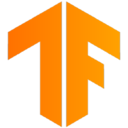
TensorFlow is an end-to-end open source platform for machine learning. It has a comprehensive, flexible ecosystem of tools, libraries and community resources that lets researchers push the state-of-the-art in ML and developers easily build and deploy ML powered applications.
Getting Started with TensorFlow
TensorFlow Tutorials
TensorFlow Developer Certificate | TensorFlow
TensorFlow Community
TensorFlow Models & Datasets
TensorFlow Cloud
Machine learning education | TensorFlow
Top Tensorflow Courses Online | Coursera
Top Tensorflow Courses Online | Udemy
Deep Learning with TensorFlow | Udemy
Deep Learning with Tensorflow | edX
Intro to TensorFlow for Deep Learning | Udacity
Intro to TensorFlow: Machine Learning Crash Course | Google Developers
Train and deploy a TensorFlow model - Azure Machine Learning
Apply machine learning models in Azure Functions with Python and TensorFlow | Microsoft Azure
Deep Learning with TensorFlow | Amazon Web Services (AWS)
TensorFlow - Amazon EMR | AWS Documentation
TensorFlow Enterprise | Google Cloud
TensorFlow Lite is an open source deep learning framework for deploying machine learning models on mobile and IoT devices.
TensorFlow.js is a JavaScript Library that lets you develop or execute ML models in JavaScript, and use ML directly in the browser client side, server side via Node.js, mobile native via React Native, desktop native via Electron, and even on IoT devices via Node.js on Raspberry Pi.
Tensorflow_macOS is a Mac-optimized version of TensorFlow and TensorFlow Addons for macOS 11.0+ accelerated using Apple's ML Compute framework.
Google Colaboratory is a free Jupyter notebook environment that requires no setup and runs entirely in the cloud, allowing you to execute TensorFlow code in your browser with a single click.
What-If Tool is a tool for code-free probing of machine learning models, useful for model understanding, debugging, and fairness. Available in TensorBoard and jupyter or colab notebooks.
TensorBoard is a suite of visualization tools to understand, debug, and optimize TensorFlow programs.
Keras is a high-level neural networks API, written in Python and capable of running on top of TensorFlow, CNTK, or Theano.It was developed with a focus on enabling fast experimentation. It is capable of running on top of TensorFlow, Microsoft Cognitive Toolkit, R, Theano, or PlaidML.
XLA (Accelerated Linear Algebra) is a domain-specific compiler for linear algebra that optimizes TensorFlow computations. The results are improvements in speed, memory usage, and portability on server and mobile platforms.
ML Perf is a broad ML benchmark suite for measuring performance of ML software frameworks, ML hardware accelerators, and ML cloud platforms.
TensorFlow Playground is an development environment to tinker around with a neural network in your browser.
TPU Research Cloud (TRC) is a program enables researchers to apply for access to a cluster of more than 1,000 Cloud TPUs at no charge to help them accelerate the next wave of research breakthroughs.
MLIR is a new intermediate representation and compiler framework.
Lattice is a library for flexible, controlled and interpretable ML solutions with common-sense shape constraints.
TensorFlow Hub is a library for reusable machine learning. Download and reuse the latest trained models with a minimal amount of code.
TensorFlow Cloud is a library to connect your local environment to Google Cloud.
TensorFlow Model Optimization Toolkit is a suite of tools for optimizing ML models for deployment and execution.
TensorFlow Recommenders is a library for building recommender system models.
TensorFlow Text is a collection of text- and NLP-related classes and ops ready to use with TensorFlow 2.
TensorFlow Graphics is a library of computer graphics functionalities ranging from cameras, lights, and materials to renderers.
TensorFlow Federated is an open source framework for machine learning and other computations on decentralized data.
TensorFlow Probability is a library for probabilistic reasoning and statistical analysis.
Tensor2Tensor is a library of deep learning models and datasets designed to make deep learning more accessible and accelerate ML research.
TensorFlow Privacy is a Python library that includes implementations of TensorFlow optimizers for training machine learning models with differential privacy.
TensorFlow Ranking is a library for Learning-to-Rank (LTR) techniques on the TensorFlow platform.
TensorFlow Agents is a library for reinforcement learning in TensorFlow.
TensorFlow Addons is a repository of contributions that conform to well-established API patterns, but implement new functionality not available in core TensorFlow, maintained by SIG Addons. TensorFlow natively supports a large number of operators, layers, metrics, losses, and optimizers.
TensorFlow I/O is a Dataset, streaming, and file system extensions, maintained by SIG IO.
TensorFlow Quantum is a quantum machine learning library for rapid prototyping of hybrid quantum-classical ML models.
Dopamine is a research framework for fast prototyping of reinforcement learning algorithms.
TRFL is a library for reinforcement learning building blocks created by DeepMind.
Mesh TensorFlow is a language for distributed deep learning, capable of specifying a broad class of distributed tensor computations.
RaggedTensors is an API that makes it easy to store and manipulate data with non-uniform shape, including text (words, sentences, characters), and batches of variable length.
Unicode Ops is an API that Supports working with Unicode text directly in TensorFlow.
Magenta is a research project exploring the role of machine learning in the process of creating art and music.
Nucleus is a library of Python and C++ code designed to make it easy to read, write and analyze data in common genomics file formats like SAM and VCF.
Sonnet is a library from DeepMind for constructing neural networks.
Neural Structured Learning is a learning framework to train neural networks by leveraging structured signals in addition to feature inputs.
Model Remediation is a library to help create and train models in a way that reduces or eliminates user harm resulting from underlying performance biases.
Fairness Indicators is a library that enables easy computation of commonly-identified fairness metrics for binary and multiclass classifiers.
Decision Forests is a State-of-the-art algorithms for training, serving and interpreting models that use decision forests for classification, regression and ranking.
Back to the Top
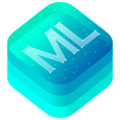
Core ML is an Apple framework for integrating machine learning models into apps running on Apple devices (including iOS, watchOS, macOS, and tvOS). Core ML introduces a public file format (.mlmodel) for a broad set of ML methods including deep neural networks (both convolutional and recurrent), tree ensembles with boosting, and generalized linear models. Models in this format can be directly integrated into apps through Xcode.
Introduction to Core ML
Integrating a Core ML Model into your App
Core ML Models
Core ML API Reference
Core ML Specification
Apple Developer Forums for Core ML
Top Core ML Courses Online | Udemy
Top Core ML Courses Online | Coursera
IBM Watson Services for Core ML | IBM
Generate Core ML assets using IBM Maximo Visual Inspection | IBM
Core ML tools is a project that contains supporting tools for Core ML model conversion, editing, and validation.
Create ML is a tool that provides new ways of training machine learning models on your Mac. It takes the complexity out of model training while producing powerful Core ML models.
Tensorflow_macOS is a Mac-optimized version of TensorFl